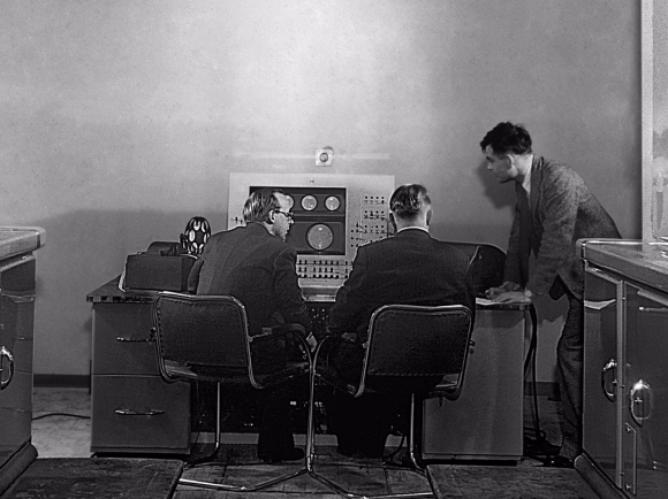LISTEN: University of Canterbury researchers recreate the world’s first computer-generated Christmas music

In a world-first reported internationally in 2016, University of Canterbury (UC) Distinguished Professor Jack Copeland and composer Jason Long restored a 66-year-old recording believed to be the earliest surviving example of computer music – and they have now recreated two historic computer-generated Christmas carols.
The University of Canterbury researchers recreated the computer-generated Yuletide music by using notes from the 66-year-old recording, which was generated in the Manchester computer lab run by the British computer scientist famous for breaking the Enigma code in World War II, Alan Turing. “The idea started when I found a reference in old material to the BBC doing a Christmas broadcast in 1951 containing some carols played by Turing’s computer in Manchester,” Copeland says.
The carols recreated are Good King Wenceslas and Jingle Bells. “Jason and I decided to recreate these,” says Copeland. “I found it amazing to hear that long-lost – and so historic – sound source belting out enjoyable festive music. It will be great if our recreations find their way onto the Christmas playlists of some radio stations internationally.”
Good King Wenceslas:
Jingle Bells:
Following the worldwide attention paid to their 2016 British Library blog concerning their restoration of the world’s earliest surviving computer music recording, the pair write in their latest British Library blog Christmas carols from Turing’s computer: “Listeners to BBC radio heard an utterly new sound in 1951 — a computer playing music. Among its Christmas fare the BBC broadcast two melodies that, although instantly recognisable, sounded like nothing else on earth. They were Jingle Bells and Good King Wenceslas, played by the mammoth Ferranti Mark I computer that stood in Alan Turing’s Computing Machine Laboratory, in Manchester.

Jason Long (left) and Jack Copeland.
“According to Ferranti’s marketing supremo, Vivian Bowden, it was ‘the most expensive and most elaborate method of playing a tune that has ever been devised’. Bowden may have kicked himself for predicting, at this seminal moment, that computer-generated music had no future.”
The researchers advise there are a few ‘dud notes’ in the recreated carols: “Because the computer chugged along at a sedate 4 kilohertz or so, hitting the right frequency was not always possible. It’s a charming feature of this early music — even if it does in places make your ears cringe.”
Still, it’s not enough to spoil the Christmas joy – regardless of whether one is an audiophile or is simply feeling festive.




